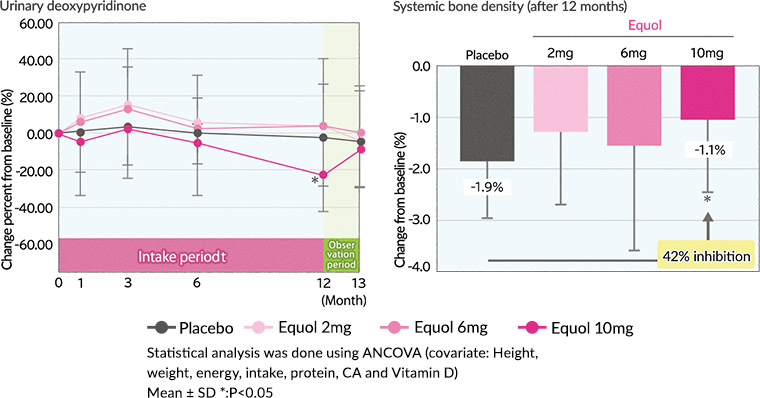9. Natural S-equol decreases bone resorption in postmenopausal, non-equol-producing Japanese women: a pilot randomized, placebo-controlled trial
Tousen Y, Ezaki J, Fujii Y, Ueno T, Nishimuta M, Ishimi Y (2011)
Menopause; 18, 563-574
Bone density
While men experience a gradual decrease in bone density with age, women experience a rapid decrease with the onset of menopause. It begins to manifest itself as a disease after the age of 60, but preventing bone density loss around the age of 50 is believed to be important for preventing bone fractures in the future. Amongst women over the age of 65 needing care, a significant proportion-29.4%-require care due to bone fractures/falls and joint disorders or accidents involving muscles. Thus, managing osteoporosis can be important in extending healthy life expectancy in women.
Study outline and results
93 non-equol producing, post-menopausal women between the ages of 45 and 60 were divided into 2 groups: equol cohort (2mg, 6mg, 10mg/day) and placebo cohort. The treatment was continued for 1 year, and a bone resorption marker, urinary deoxypyridinoline, and the whole body bone density were measured. The level of urinary deoxypyridinoline at the 12th month had significantly decreased in the group that received 10mg of equol, compared to the placebo group.
At the 12th month, a decrease in the whole body bone density appeared to be significantly inhibited in the group that received 10mg of equol, compared to placebo.
From these results, it can be seen that 10mg of equol sufficiently inhibits bone resorption and decrease in bone density in post-menopausal women.







